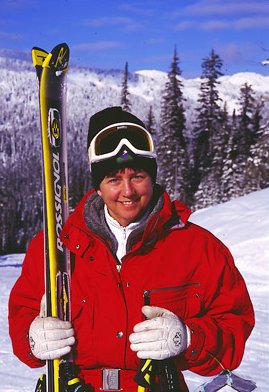Remove ads
The 1968 Winter Olympics, officially known as the X Olympic Winter Games, was a winter multi-sport event held in Grenoble, France, from 6 to 18 February 1968. A total of 1,158 athletes representing 37 National Olympic Committees (NOCs) participated, including first-time entrants Morocco.[1][2] The games featured 35 events in 6 sports and 10 disciplines.[3][4] The team relay event in biathlon was contested for the first time.[5]
Fifteen NOCs won at least one medal, and thirteen of them secured at least one gold. East and West Germany entered separate teams for the first time,[6] ending a run of three straight editions (1956–1964) in which German athletes participated as a single team. Victories by Thomas Köhler and Klaus-Michael Bonsack (luge doubles), and by Franz Keller (Nordic combined), resulted in the first Winter Olympics gold medals for East and West Germany, respectively.[7][8] Czechoslovakia also got its first-ever gold at the Winter Games, thanks to a successful combination of ski jumps by Jiří Raška in the normal hill (70 m) event.[9] In Grenoble, Romania won its first medal at the Winter Games, as Ion Panţuru and Nicolae Neagoe secured the bronze in bobsleigh's two-man event.[10]
Toini Gustafsson, a Swedish cross-country skier, contributed three of her NOC's eight medals, including two of its three golds, with victories in both women's individual events and a runner-up place in the team relay.[11] Among individual participants, French alpine skier Jean-Claude Killy had the most gold medals with three, having swept men's alpine skiing events.[12]
Remove ads


The medal table is based on information provided by the International Olympic Committee (IOC) and is consistent with IOC conventional sorting in its published medal tables. The table uses the Olympic medal table sorting method. By default, the table is ordered by the number of gold medals the athletes from a nation have won, where a nation is an entity represented by a NOC. The number of silver medals is taken into consideration next and then the number of bronze medals.[13][14] If teams are still tied, equal ranking is given and they are listed alphabetically by their IOC country code.[15]
In speed skating, two-way ties for the second place in the men's 500 m and men's 1,500 m events, as well as a three-way tie in the women's 500 m event, resulted in the awarding of an additional four silver medals; as a consequence, three bronzes were not presented.[16]
* Host nation (France)
| Rank | Nation | Gold | Silver | Bronze | Total |
|---|---|---|---|---|---|
| 1 | 6 | 6 | 2 | 14 | |
| 2 | 5 | 5 | 3 | 13 | |
| 3 | 4 | 3 | 2 | 9 | |
| 4 | 4 | 0 | 0 | 4 | |
| 5 | 3 | 4 | 4 | 11 | |
| 6 | 3 | 3 | 3 | 9 | |
| 7 | 3 | 2 | 3 | 8 | |
| 8 | 2 | 2 | 3 | 7 | |
| 9 | 1 | 5 | 1 | 7 | |
| 10 | 1 | 2 | 2 | 5 | |
| 1 | 2 | 2 | 5 | ||
| 12 | 1 | 2 | 1 | 4 | |
| 13 | 1 | 1 | 1 | 3 | |
| 14 | 0 | 2 | 4 | 6 | |
| 15 | 0 | 0 | 1 | 1 | |
| Totals (15 entries) | 35 | 39 | 32 | 106 | |
Remove ads
Remove ads
Wikiwand in your browser!
Seamless Wikipedia browsing. On steroids.
Every time you click a link to Wikipedia, Wiktionary or Wikiquote in your browser's search results, it will show the modern Wikiwand interface.
Wikiwand extension is a five stars, simple, with minimum permission required to keep your browsing private, safe and transparent.
Remove ads